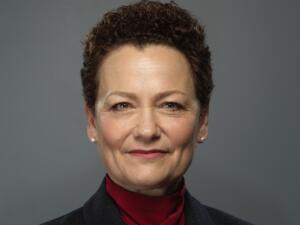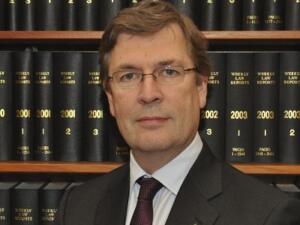UK Court of Appeal denies Tesla a pool licence
The UK courts have once again denied Tesla a 5G pool licence. The ruling was handed down today by the UK Court of Appeal in the car manufacturer's dispute with Avanci and its licensor InterDigital. But the judgment was not clear-cut.
6 March 2025 by Mathieu Klos
The Court of Appeal panel comprising presiding judge Richard Arnold, Philippa Whipple and Stephen Phillips heard the appeal at the beginning of December. While Whipple and Phillips have now dismissed Tesla’s appeal, Arnold allowed it in part. Arnold believes the UK patent court has the authority to rule on a global FRAND rate for a pool licence.
As a consequence, the Court of Appeal dismissed the appeal in its entirety (case ID: CA-2024-001749). According to the ruling, Tesla originally complained that Avanci has only offered a flat rate of $32 per vehicle for such a licence on a non-negotiable basis. Tesla contend that this rate far exceeds a FRAND rate.
Tesla had always confirmed that it needed a 5G licence in the UK. The UK is the fourth largest market for Tesla globally. Consequently, Tesla has undertaken to accept a FRAND licence on the terms determined by the patent court. Avanci and InterDigital have disputed the jurisdiction of the UK courts for determining a pool licence and have now prevailed with this position.
- Richard Arnold
- Philippa Whipple
- Stephen Phillips
The Court of Appeal judges thus confirmed the first-instance ruling.
No FRAND rate from High Court
In July 2024, judge Timothy Fancourt of the UK High Court had refused to set a FRAND rate (case ID: HP-2023-000042). Fancourt ruled that Tesla could not seek a FRAND determination for the entire 5G pool administered by defendant Avanci, whether through certain claims against Avanci itself or by treating pool licensor InterDigital as a representative of the other Avanci SEP owners. The pool comprises around 70 licensors. Tesla then appealed the judgment.
Tesla is challenging the validity and essentiality of three InterDigital patents declared to the 5G standard. However, this aspect did not play a central role in today’s judgment.
The Court of Appeal has denied Tesla permission to appeal to the Supreme Court, but the company can now ask the latter to allow the appeal.
In an initial reaction, Avanci expressed satisfaction with the ruling. A spokesman said, “Both the High Court and Court of Appeal have dismissed the case and found that Tesla’s claims did not constitute a serious issue to be tried. The door remains open for Tesla to take an Avanci 5G Vehicle licence and benefit from the early licensee reduction if it does so before selling its first 5G capable vehicle.”
Battle of jurisdictions
The UK Court of Appeal’s decision has been eagerly awaited in the mobile communications industry. If Tesla had prevailed, it would have been the first global ruling on the rate for a pool licence. So far, only the Supreme Court in China has confirmed that a Chinese court has jurisdiction to review a pool licence in the dispute between TCL and the Access Advance Pool.
The British courts have established themselves as the most important worldwide for determining pool licences. For example, the Court of Appeal’s decision that Xiaomi is entitled to an interim licence in the dispute with Panasonic led to a quick settlement. Lenovo and Ericsson are also disputing an interim licence. Last Friday, the UK Court of Appeal had ruled that Lenovo is entitled to an interim cross-licence from Ericsson. Richard Arnold was also part of that panel.
German courts or even the UPC have not yet set a FRAND rate. However, the local divisions of Mannheim and Munich recently issued their first FRAND rulings in the disputes between Panasonic and Oppo, and Huawei and Netgear respectively. These provide initial indications of the UPC’s position on SEP injunctions and the willingness of implementers.
On 20 March, the Higher Regional Court Munich will publish its ruling on HMD’s appeal in the dispute with VoiceAge over speech-cooding standards. The EU Commission had intervened in the dispute via an amicus brief. At the hearing, the Higher Regional Court also presented a new approach to the willingness of licensees.
Pooling expertise for Avanci
Avanci’s barristers in the case were Brian Nicholson and Miruna Bercariu of 11 South Square. The patent pool also relies on two solicitor firms. Partner Arty Rajendra leads the Osborne Clark team including Luke Maunder. The second solicitor firm with a well-known track record in SEP cases is EIP. Gary Moss and Owen Waugh advise Avanci. Moss and Rajendra have previously worked together in SEP cases, such as for Unwired Planet against Huawei, which led to the landmark SEP ruling by the UK Supreme Court in 2019.
As usual in UK SEP cases, InterDigital is working with Gowling WLG on the solicitor side. Alexandra Brodie is frequently present for the SEP holder in UK courtrooms. InterDigital has also recently worked with Richard Vary from the London team of Bird & Bird.
- Arty Rajendra
- Gary Moss
- Alexandra Brodie
Interdigital’s barristers in the Court of Appeal proceedings were Thomas Raphael of Twenty Essex and Maxwell Keay of 8 New Square.
Tesla relies on Powell Gilbert
James Segan of Blackstone Chambers and Ligia Osepciu of Monckton Chambers were Tesla’s barristers in the case. They had already represented the US car manufacturer in the High Court proceedings.
- Pete Damerell
- Bethan Hopewell
The solicitors behind Tesla’s claims against Avanci and InterDigital are from London IP boutique Powell Gilbert. Pete Damerell and Bethan Hopewell lead the team.








